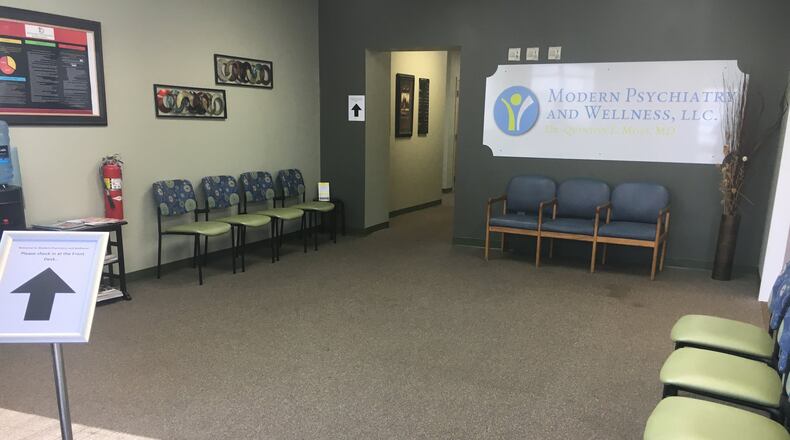About 115 mental health centers across Ohio gave out a total of $5 million in bonuses to help them retain their employees, using federal stimulus CARES Act grants from the Ohio Department of Mental Health and Addiction Services.
Richele Shepard, WellSpring executive director, said it has been a tough couple of years for workers at the agency, which serves Clark, Champaign and Logan counties.
A bonus was a good way to help credentialed staff feel appreciated by the agency, she said, as well as by the state of Ohio. WellSpring was awarded $25,000.
“What we see with nurses, any first responders, teachers, other mental health professionals, social workers, is that they’re just tapped out,” Shepard said. “They worked so hard. There’s not enough people to really handle all of the needs, so it’s been difficult. Having even a little bit of money to say thank you is helpful.”
Getting the best outcomes for Ohioans with mental health and substance use issues “requires a behavioral health workforce that is supported in its ability to successfully provide care, and this funding is one opportunity to help retain those on the frontlines of community behavioral health during this critical time of need,” Ohio Department of Mental Health and Addiction Services Director Lori Criss said in an announcement about the grants.
Agencies received grants of up to $50,000.
Not all agencies that applied received grants, which the state said is due to a random selection process and availability of funding. Workers who get the bonuses through the program commit to working for at least one more year.
In December 2021, The Ohio Council of Behavioral Health & Family Services Providers released a report and survey that found:
- More than 98% of survey respondents said recruitment was very or somewhat difficult between August and October 2021.
- More than 88% reported difficulty keeping staff.
- Roughly 77% reported higher turnover with many positions open for two to six months.
- More than 10% reported clinical and medical vacancies lasting for more than a year.
Additionally, the group reported demand for mental health services has climbed.
“These guys have weathered the storms, they have been flexible and always made the needs of clients and each other as a team a top priority,” said Amy Keller, owner of The Next Right Thing, based in Butler County.
The Next Right Thing received $15,000.
Keller said no matter how much her staff deserved a bonus, she would have had a hard time affording one without the CARES Act grant, because their revenue suffered during the pandemic.
For example, some clients missed appointments because of COVID exposure or illness, and others had a hard time with telehealth.
Kristin Gorman, dual diagnosis therapist at The Next Right Thing, said she gets paid based on services she provides, which has been negatively impacted by the pandemic. She said the bonus supplemented her income during this difficult time.
Susanna Lozano, chief operating officer with Modern Psychiatry and Wellness in Butler County, said they had already lost staff due to the pandemic by the time the state gave out the money for bonuses. Counselors and therapists were hard to retain, and she said some lower paid workers had quit when unemployment payments were higher.
“We’ve lost some of the staff that we were going to lose prior to this grant,” she said.
The grant was divided up evenly among staff, excluding some of the higher paid positions like executive leadership.
“It was a nice surprise. It was a big blessing, and it made people happy,” Lozano said.
About the Author

